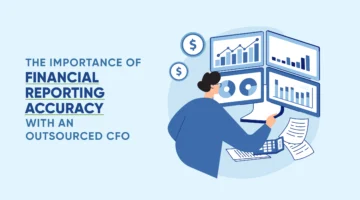Steps to Manage Rising Interest Rates
Recently, the Federal Reserve made the decision to increase the federal funds rate with an intent to continue to raise interest rates. Though higher interest rates may help to curb inflation overall, increased interest rates can cause business owners to face a number of challenges. As interest rates rise, it’s critical to prioritize your business’ approach to borrowing and financing opportunities, as well as analyze your business’ capital structure as a whole. Here, we’ll address some of the challenges that rising interest rates can pose to your company, as well as strategies to overcome those obstacles.
How Rising Interest Rates Negatively Impact Business
Rising interest rates play a significant role in your cost of doing business, which is why it’s important to be aware of any fluctuations in rates. Staying ahead of changing interest rates and adjusting your business model, process, and procedures as needed is key. Some of the ways that high interest rates can negatively impact your business include the following:
Increased Borrowing Costs
When interest rates rise, the cost of borrowing money typically increases, making it more expensive for your business to be able to access financing. The amount of additional interest you pay each month for loans can reduce the amount of cash available to other business expenses, thereby dampening your business’ ability to fund growth, invest, or spend on other expenses, such as salaries, inventory, or new equipment.
Additionally, higher borrowing costs can also make it harder for your business to obtain financing in the first place, as lenders may be more cautious about extending loans in a higher interest rate environment. This can limit the overall capital and lending options available to your business.
Decreased Consumer Spending
Higher interest rates can lead to a decrease in consumer spending, as consumers may have less money to spend due to higher borrowing costs on loans such as mortgages and credit cards. This can hurt your business especially if it relies directly on consumer spending as opposed to other methods, such as B2B selling.
Depreciation Of Assets
As interest rates rise, the value of assets such as real estate, bonds, and stocks can decrease. This in turn negatively impacts businesses that hold these assets, as they may experience losses on their investments.
Currency Fluctuations
In times of rising interest rates, currency appreciation may occur. Appreciation takes place when the value of one country’s currency increases relative to others within the foreign exchange market. This ultimately can make exports more expensive and imports cheaper, which is consequently detrimental to businesses that rely on exports for their revenue or import goods to produce their products.
It’s no secret, then, that these changes pose significant challenges for businesses. The best measure is to proactively monitor interest rate fluctuations and adjust processes accordingly to minimize the impact on your overall financial health and performance.
Strategies to Manage Rising Interest Rates
To avoid having your business’ profitability affected in times of high interest, we recommend implementing some of the strategies below. However, if you don’t know where to begin, bringing in an outsourced accountant to work with your business on a fractional business is a great place to start. An outsourced accounting consultant can help monitor the current market situation and adjust your business plan accordingly, all while saving you on hiring costs.
Evaluate existing debt: Start by taking a hard look at your existing debt and looking for opportunities to refinance at lower rates. This could involve negotiating with lenders, consolidating debt, or switching to a variable rate loan. A variable rate loan has an interest rate charged can fluctuate over the course of the repayment period. This is in contrast to a fixed-rate loan, where the interest rate remains constant throughout the repayment period. Variable rate loans are generally common in markets where interest rates are volatile, or when lenders are looking to manage their risk exposure.
Reduce debt: When interest rates fluctuate, it’s important to reduce your business’ reliance on debt. This can be achieved by cutting expenses, increasing revenue, or using alternative financing methods, such as equity financing or leasing.
Adjust business plans: Next, evaluate your overall business plan to reduce their exposure to interest rate risk. For example, you may decide to delay capital expenditures or reduce inventory levels to conserve cash. You may also seek to diversify your investments by spreading them out across different asset classes and sectors, rather than having all of your investments in one place.
Hedge against interest rate risk: You can look at financial instruments such as interest rate swaps, options, or futures contracts to hedge against interest rate risk. This involves paying a premium to lock in a fixed rate for a certain period, which can provide protection against future rate hikes.
Monitor economic indicators: Strive to stay on top of economic indicators such as inflation, GDP growth, and central bank policy. This will help you stay informed about changes in interest rates and adjust your business strategies accordingly. An outsourced consultant can similarly provide you with updates on economic indicators and help your business stay agile in the face of fluctuations.
Though managing rising interest rates poses a number of roadblocks, your business can succeed through careful planning and proactive strategies, consequently minimizing the market’s impact on your business’ financial performance.



